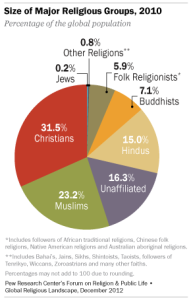Terror in Burma: Buddhists vs. Muslims
Patrick Coclanis
World Affairs, November/December 2013
EXTRACT:
The main message of 969 was (and is) Burma for Buddhists, particularly for Buddhists who are Bamar rather than members of other ethnic groups. Shortly after the movement began, a monk named Kyaw Lwin became a central figure, and his writings were distilled and distributed by a unit of the official Religious Ministry, first as “How to Live as a Good Buddhist” (1992) and later as “The Best Buddhist” (2000). After Kyaw Lwin’s death in 2001, at the age of seventy, Wirathu—who had known Kyaw Lwin for a number of years—along with a number of other monks, picked up the mantle and began elaborating upon the dead monk’s thoughts, albeit with a more explicitly and aggressively anti-Muslim message.
The movement gained momentum in Burma in 2001, helping to precipitate an upsurge of anti-Muslim activity (the destruction of the Bamiyan Buddhas in Afghanistan by the Islamist Taliban in March played an incendiary role). Such activity included anti-Muslim riots, most notably in Sittwe, capital of Rakhine State, in February 2001, and in Taungoo, in the Bago Region of south-central Burma, about two hundred and twenty kilometers north-northeast of what was then the Burmese capital, Yangon, in May 2001. In the latter, more than two hundred Muslims were killed and eleven mosques destroyed. All of this happened even before September 11th exacerbated anti-Muslim sentiment in Burma and elsewhere.

Phi Beta Iota: Poverty is the number one threat to humanity. Poverty stems in large part from corruption and the attendant loss of legitimacy and efficacy among governments. What few seem to understand is that when scarcity creates poverty, masses are mobilized by religions and charismatics. The Sunni – Shi'ite split among Muslims is certainly important, but vastly more important are the schisms between Hindus and Buddhists, Hindus and Sikhs, between Buddhists and Muslims, and so on. India is the world's most complex country — a country in which 21 languages have over a million speakers each. When a religion is in minority status, feels abused, and is impoverished at the same time, this is a flashpoint. When the government is corrupt, inattentive, and ineffective, this is the foundation for a flashpoint burning down the house. At the same time, there is a need for counterintelligence, and particularly religious counterintelligence. Traitors come in two major flavors — those bought by money, and those motivated by religion.
See Also:
Counterintelligence @ Phi Beta Iota



